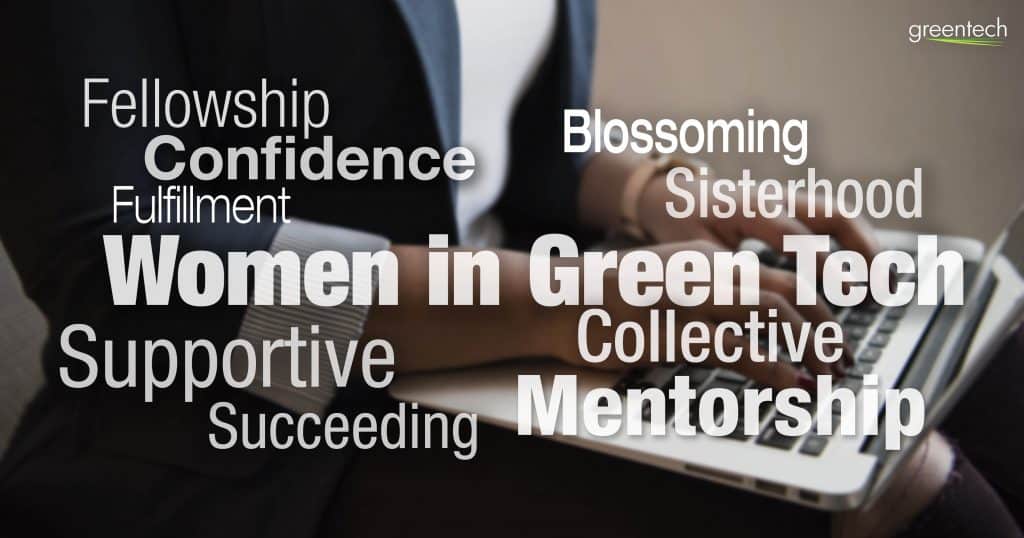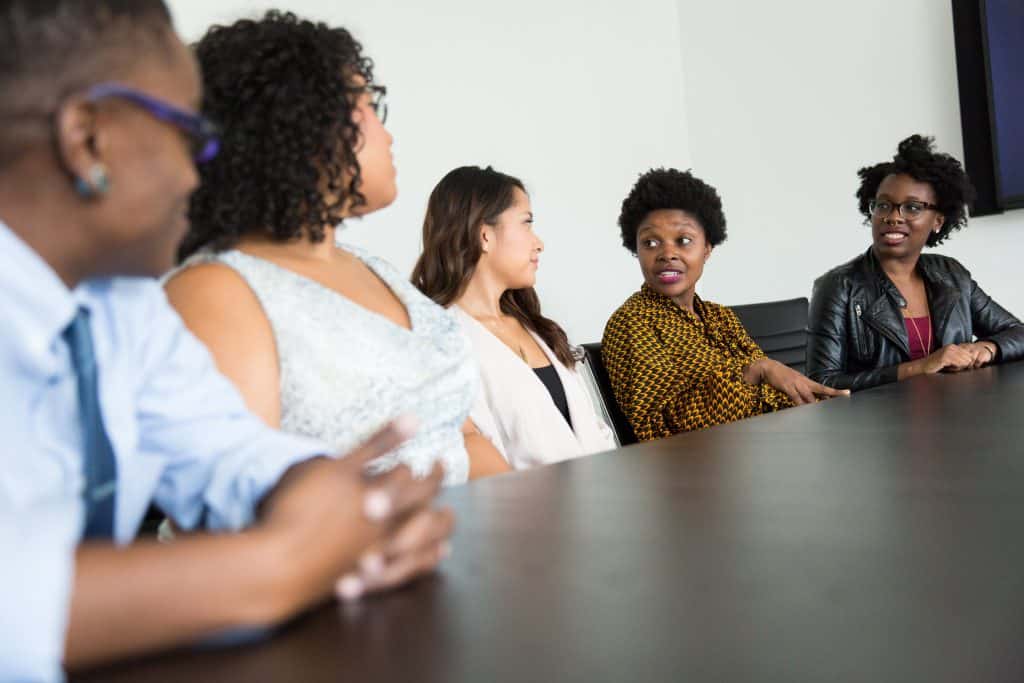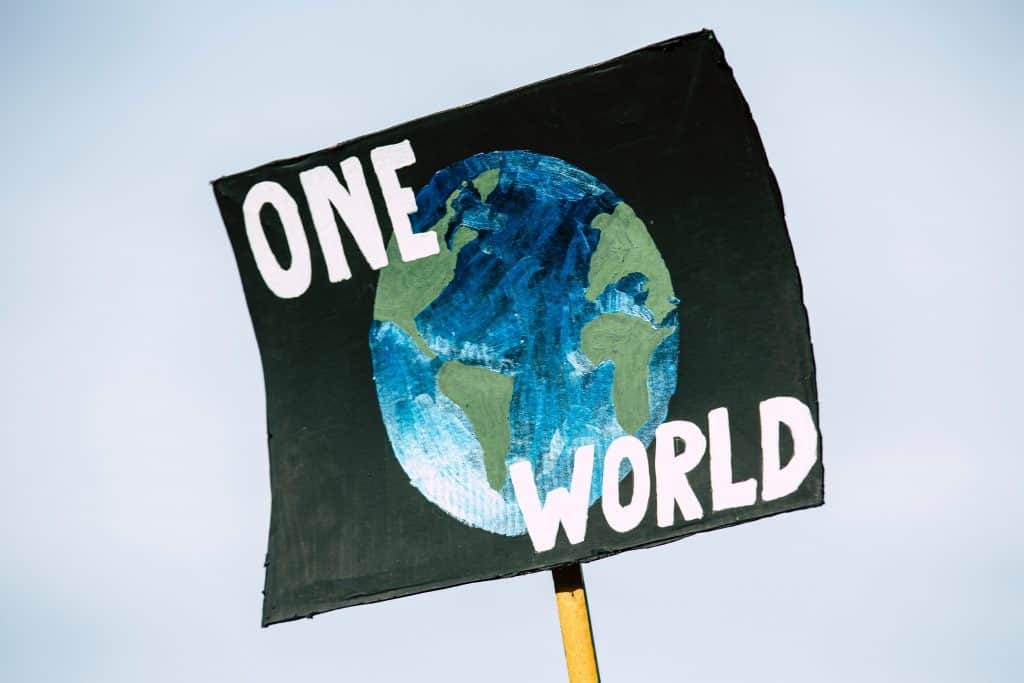October 2021

In the third article in our Women in Green Technology series, Greentech spoke with Lisa Ann Pinkerton, founder and Chairwoman of Women in Cleantech & Sustainability (WCS). Since its formation in 2011, the organisation has held unique events, provided mentorship programmes, and created a supportive network for anyone in the sustainable technology industry, especially women.
Greentech: Congratulations on 10 years of WCS! Could you tell me a little bit about how it began?
Lisa Ann Pinkerton: Back in 2009, I started Technica Communications which is a full service, PR and marketing firm specifically for companies furthering our progress through the energy transition. As a young entrepreneur, I was attending a lot of local networking events for industry in the San Francisco Bay Area, and inevitably I would meet many men at these events. I would tell them I’m a business owner and they would say, “Oh that’s so interesting. Tell me more.” I remember thinking that if I were a guy in my 30s, me owning a company wouldn’t be very interesting at all, right?
Eventually, the few women attending these events ended up congregating together and we enjoyed meeting each other.
At the same time, I was going to female entrepreneurship events. The networking was amazing. We had so much fun. I realised that I wanted to bring these two worlds together. There were a couple of women related organizations in the Bay Area at that time, but they weren’t really hosting events. I thought it was time to build something different.
10 years later and we are international and fully virtual, with two chapters in San Francisco and Los Angeles, which will have in-person events once COVID calms down. We have a mentorship programme, a pitch competition, industry education events, and other career development work that we do. We have all these different programs that have grown out of this desire to bring people together and support women as they build a career in this space.

Greentech: Did you notice that a lot of the women you met at these events were facing similar challenges in the industry?
Lisa Ann Pinkerton: Yes definitely. Probably more challenges than I face. As a service provider, I’m instantly on equal footing with people that I work with at these various companies. A lot of the women that come into WCS don’t enjoy that same experience. They feel marginalized and ignored.
These women don’t feel like they have the agency, even though they could be great leaders. So they come to us for confidence and support; they want to know they are not alone. Our volunteer programs within the organization also encourage people to utilize and hone their management and leadership skills. I think something that sets WCS apart is the true sisterhood that we create in this community. We work hard to make what we do fun, because we work really hard 8 to 10 hours a day and the last thing you want to do is go to an event that is going to feel like more work.
Greentech: That is definitely something that can be missing in business. The comfortable, fun aspect. I wanted to ask a bit about your background. It has been quite sustainability focussed. Is it something you have always been passionate about?
Lisa Ann Pinkerton: From a young age, my parents raised me to be a good steward of the environment and nature. I went to my first Earth Day festival when I was a teenager and it resonated with me. There was a moment when me and my friends were walking back to our cars, and we had this running joke in our group that if nobody minded that you threw trash on the ground, then you were allowed to do it. So heading out of the festival one of my friends said “hey, anybody mind if I litter?” and this time I turned to him and said “actually I do.”
From that moment, I started being that bit more conscientious and serious about my role in the environment.
My passion also sparked from my time as an NPR reporter covering environmental topics for the whole western region of Pennsylvania. I started doing stories as a freelancer and eight years later my stories were running locally in Pittsburgh and nationally. By the time I was in Cleveland covering the environment as well as other topics, I started to realise I was more in love with these companies that I was covering in the cleantech space than doing the news everyday. That’s when I decided to go into public relations because they needed a lot more help than just one story.

Greentech: Do you feel that the media accurately reflects what is going on in the world of sustainability? How have you seen things change in the landscape since the beginning of your career?
Lisa Ann Pinkerton: I think it’s more in vogue which is good. I think to some level people have always cared but in the past it hasn’t been as high of a priority as things such as the economy.
As we have been moving along this timeline and evidence of climate change is becoming more visible to people and affecting their daily lives, people are feeling the pain of it.
What I have noticed in my career as a reporter and as a PR professional is that the media’s interest in climate change topics ebbs and flows based on the administration within office. If the administration doesn’t see it as important, then the media isn’t going to cover it as much.
What we’ve recognised this year is a significant increase in media and investor interest in the environment.There’s a lot of money flowing into this space and a lot of reporters that want to cover it. We needed that 10 years ago but we didn’t have it until now, so we have to make the best use of it while we do.
Greentech: Going back to the role that women play in helping the environment. Do you feel that the drive for sustainability is opening up new opportunities for women? Being a whole new area of business.
Lisa Ann Pinkerton: I do. New companies are being built and they are looking for strong talent. People in this space are a bit more tuned in to the concept that it’s important to have diverse teams, whether that is gender diversity or racial diversity. For many investors now, it is a conversation they breach with their startups early on.

Greentech: Are there any particular qualities that you feel women can bring to the green technology industry?
Lisa Ann Pinkerton: We definitely bring a different type of perspective, and maybe a different set of values. Women tend to lead a bit differently than men. They tend to lead by consensus and problem solve as a group.
Women also bring a tremendous amount of passion. There’s this sense of longevity that women might feel more acutely than men. Simply because we are the bearers of children. So we may think more deeply about what the world is going to look like for generations to come.
Greentech: What advice would you give to women and people in general who want to make a difference, but aren’t sure where to begin?
Lisa Ann Pinkerton: My mantra, which I learned from my fiance Julien Adler, who is an executive coach, is that the best medicine for anxiety and fear about what is happening to our planet is action. You may feel like one person cannot make a difference because the problem is too big. But if each of us did something to try and mitigate the effects of climate change in one way or another, collectively we would be doing a lot. We all have influence in our worlds, and we get a chance to leverage it, as the IPCC says we have 10 years to turn back the worst effects of climate change. The Earth is a co-op; we are all members, and we all get a chance to do our part.
Being in action could be as simple as joining a group like WCS, or the Citizin’s Climate Lobby, or Young Professionals in the Environment. A lot of women come to our events because they get fulfillment, inspiration and fellowship. We need organisations of people coming together creating such a groundhog activity that politicians and governments cannot ignore it.
Greentech: Reflecting on the anniversary, where do you hope WCS will be in the next 10 years?
Lisa Ann Pinkerton: I would love to see WCS become a big, multi-million dollar endowment, so that we know it will last long into the future. I really want it to live a long and prosperous life after I’m gone.
We also want to set up more chapters internationally. We have San Francisco and Los Angeles right now, but we are thinking about New York, London, Paris, Amsterdam, Norway, and other places where cleantech activity is really blossoming and succeeding.
We want to have more virtual programs so it doesn’t matter where you are in the world, you can gain access to this sisterhood and gain the confidence, support and knowledge that you’re looking for to thrive in your career. We also want to expand our programs to younger women and girls, into colleges and high schools – because we know that young girls make decisions about their life trajectory early on, and are more likely to choose paths where they see other women succeeding.
Image credits:
christina-wocintechchat-com-jzonFmreWok
nikola-jovanovic-OBok3F8buKY
markus-spiske-r1BS0pzlr1M
© Greentech 2022